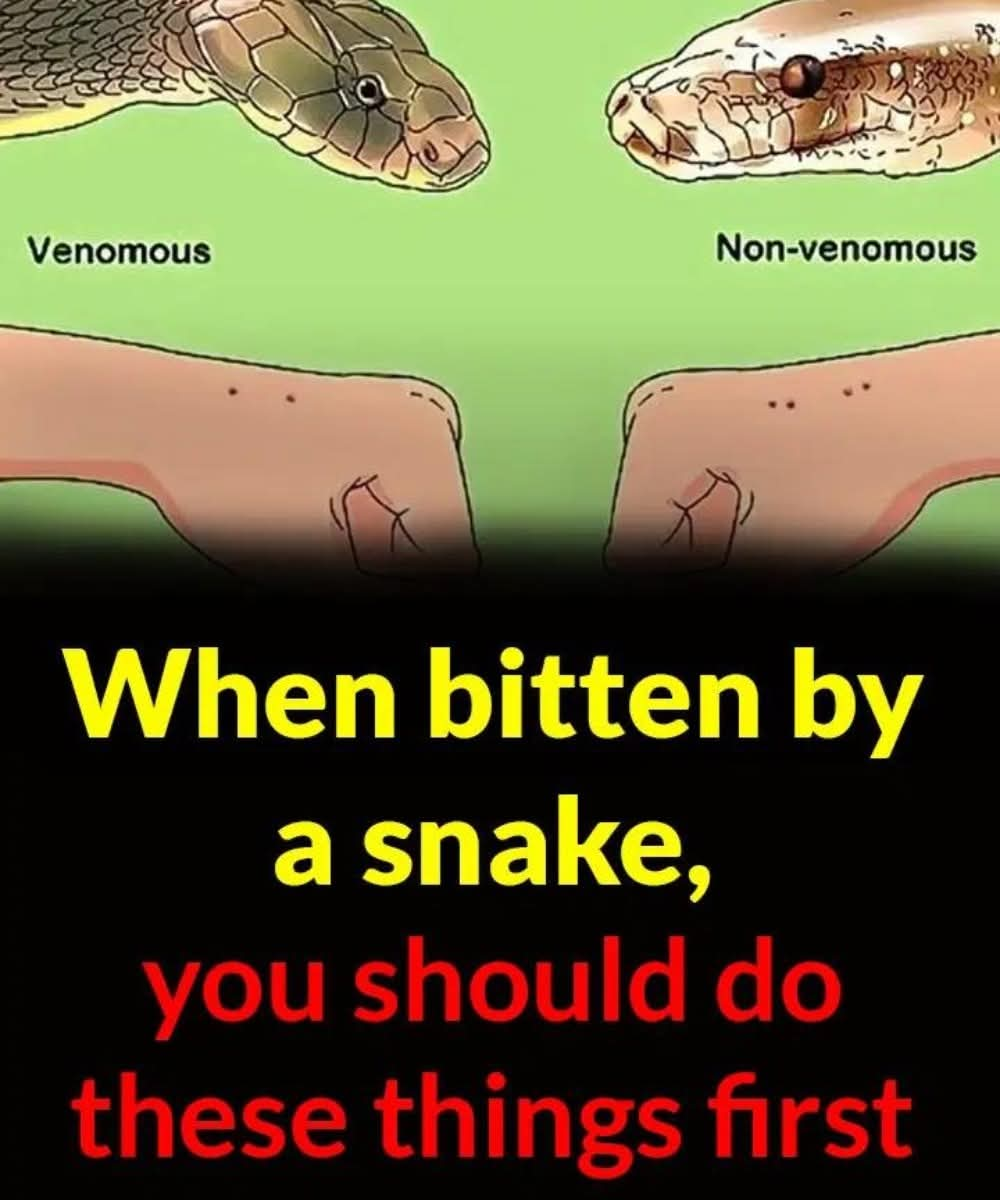Bitten by a Snake? Stay Calm — These First Steps Could Save Your Life

Getting bitten by a snake can be terrifying — but what you do in the first few minutes is critical. Whether it’s venomous or not, how you react can make a big difference in your recovery.
Snakebites can happen anywhere — in the wild, your backyard, or even inside a home in certain regions. If you or someone you know gets bitten, follow these life-saving tips immediately.
1. Stay Calm and Still
Panic makes your heart beat faster, which can spread venom more quickly through your bloodstream. Sit or lie down and keep the affected area as still as possible.
2. Call Emergency Services Immediately
Don’t wait. Whether you think the snake is venomous or not, call an ambulance or emergency number right away. Quick medical help is essential.
3. Keep the Bite Area Below Heart Level
This helps slow the spread of venom to vital organs. If possible, keep the bitten limb lower than your heart.
4. Remove Tight Items
Take off rings, bracelets, or tight clothing near the bite area. Swelling happens fast, and tight items can cut off circulation.
5. Clean the Wound Gently
If possible, rinse the bite with clean water, but don’t apply ice, don’t suck the venom, and don’t cut the wound. These old myths can actually make things worse.
6. Do Not Move Around
Walking or moving increases venom spread. Stay as still as possible and wait for medical professionals to arrive.
7. Try to Identify the Snake (Without Risk)
Only if it’s safe, try to remember the color, shape, or patterns of the snake. A quick photo from a distance can help doctors give the right antivenom.
What You Should NEVER Do:
- Don’t suck out the venom
- Don’t apply ice or cold packs
- Don’t use a tourniquet
- Don’t try to catch or kill the snake
- Don’t drink alcohol or caffeine
Why Medical Help Is So Important
Venomous snake bites can lead to serious damage, including tissue death, nerve damage, and even death if not treated. Antivenom is the only effective treatment, and it must be given at a hospital.
Even non-venomous bites can cause infections or allergic reactions, so it’s best to get checked regardless.
FAQs
Q1: How do I know if the snake was venomous?
A: Symptoms like swelling, pain, numbness, dizziness, or trouble breathing are warning signs, but only doctors can confirm.
Q2: Can I tie something above the bite to stop the venom?
A: No. Tourniquets can do more harm than good by cutting off blood flow completely.
Q3: Should I kill the snake to take to the hospital?
A: Absolutely not. It’s dangerous and unnecessary. A photo or good description is enough.
Q4: How long do I have after a venomous bite?
A: It varies, but faster treatment = better outcome. Never delay medical care.






